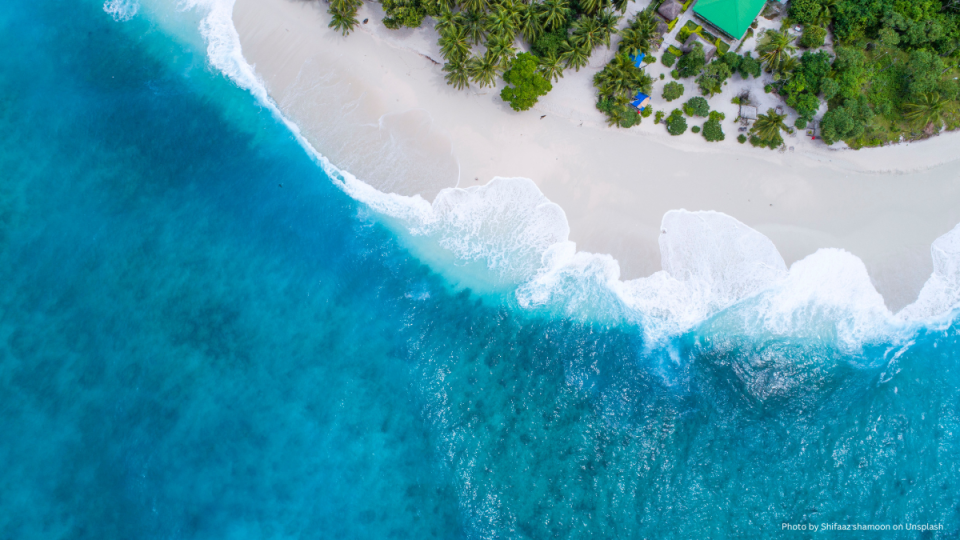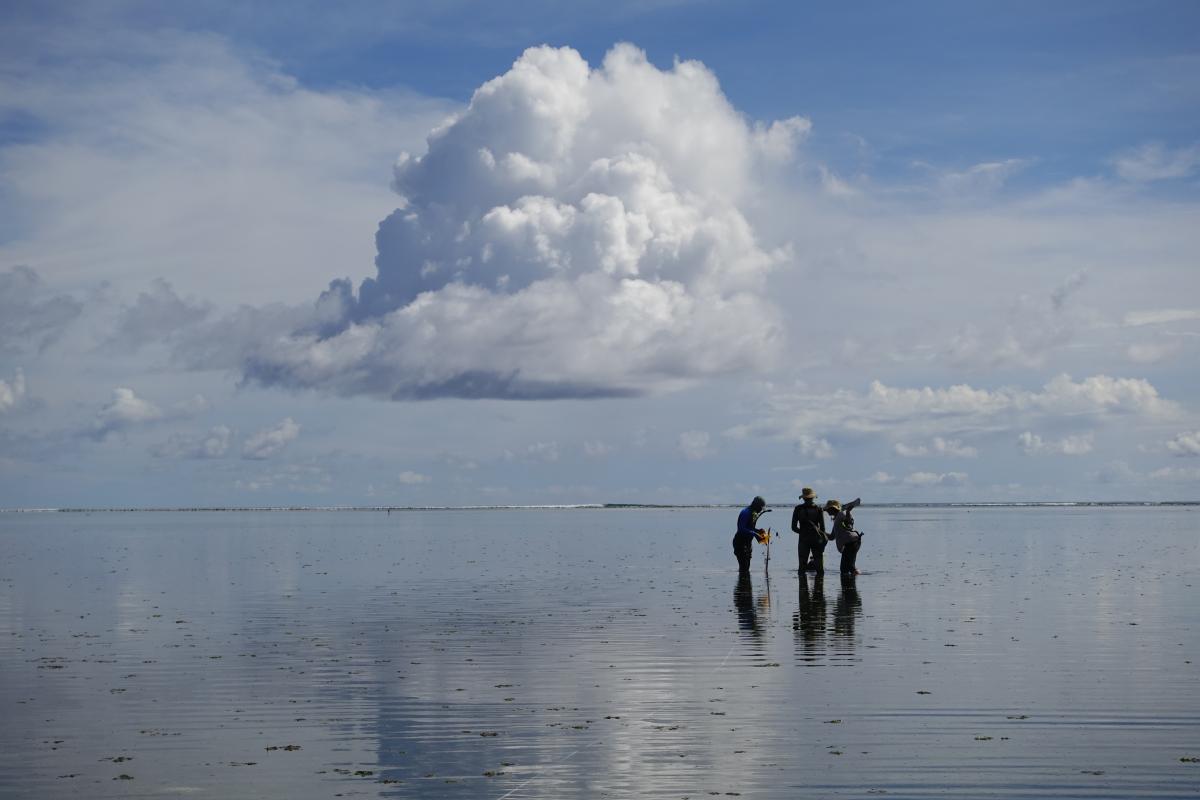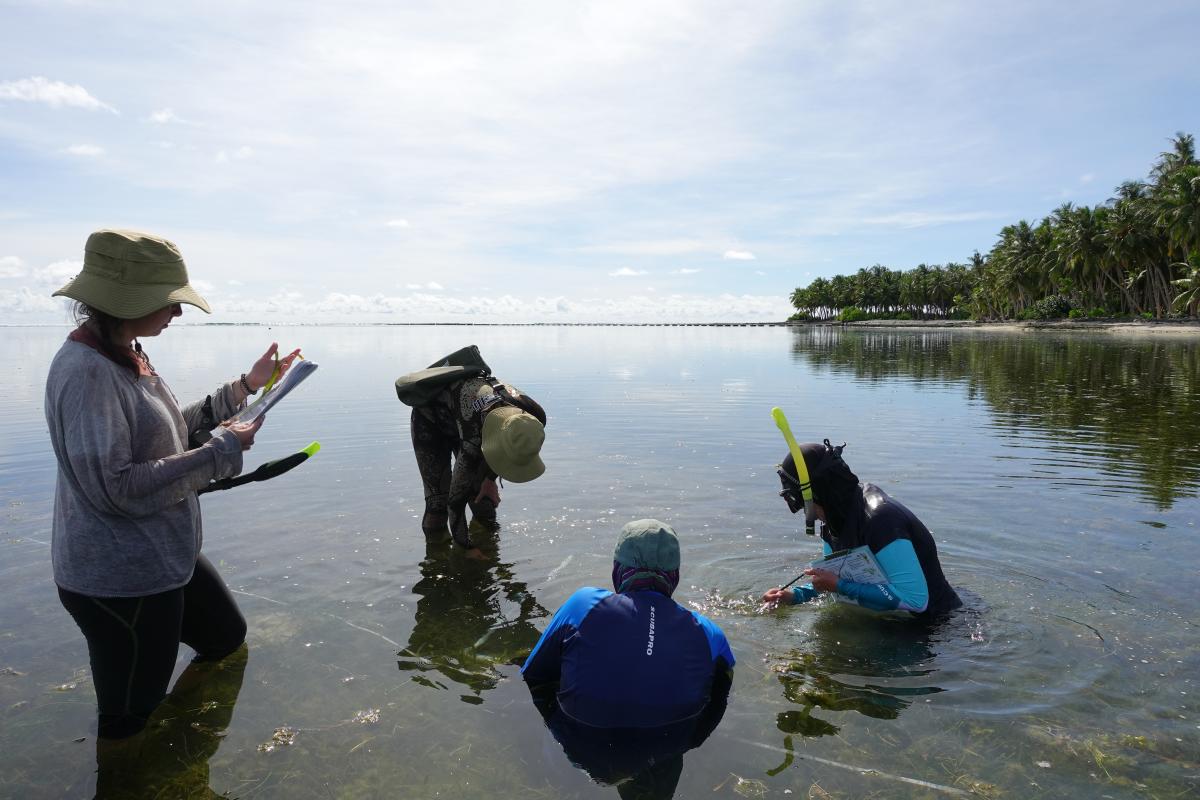Enhancing capacity for SEEA Ecosystem Accounting in the Maldives

The Government of the Republic of Maldives recently began developing natural capital accounts through pilot testing of the SEEA Ecosystem Accounting (SEEA EA) framework in Laamu Atoll, an ecologically sensitive and economically important area in southern Maldives.
The two main objectives of the initiative are to a). pilot the use of the SEEA EA framework within Laamu Atoll to support the Global Environment Facility (GEF) project, ‘Enhancing National Development through Environmentally Resilient Islands (ENDhERI)’, which seeks to expand knowledge of green growth development, social capital and mainstream the use of Natural Capital Accounting (NCA) in decision making; and b). build natural capital accounting capacity, in particular ecosystem accounting, within the Maldives through the provision of training for government ministries and the development of university courses by Maldives National University (MNU).
The pilot testing of the SEEA EA framework in Laamu Atoll is expected to generate valuable information on the health and productivity of the region's ecosystems and how they contribute to the local economy and people's well-being. The research garnered will provide the basis for a fit-for-purpose accounting system in line with the System of Environmental Economic Accounting (SEEA) framework.
 |
 |
The initiative recently kicked off with a series of events, meetings and site visits in Male and Laamu Atoll. These included a workshop with key stakeholders to identify priority policy areas and ecosystems to perform SEEA Ecosystem Accounting; an NCA Public Lecture at the Maldives National University (MNU) to provide insights and knowledge for the MNU students and foster interest in sustainable development and ecosystem management (especially through NCA and SEEA Ecosystem Accounts); meetings with national and sub-national government (Local and Atoll Councils) representatives and non-governmental organisations to better understand inter-government relationships, data availability, challenges, and risks to compiling SEEA Ecosystem Accounts; and site visits to identify the appropriate methodologies for collecting data on ecosystem condition.
The initiative will run through to the end of 2024. To learn more and follow progress, please visit the Global Ocean Accounts Partnership website, as well as project partner (see below) social channels.
The initiative is a collaboration between the University of New South Wales, the Fisheries Resource Center of Indonesia (Rekam, the Maldives National University (MNU), Maldivian Ministry of Environment, Climate Change and Technology and is fiscally supported by the Global Environment Facility, the United Nations Environment Program and the UK's Department for Environment, Food and Rural Affairs.
Article and photos contributed by the Global Ocean Accounts Partnership
